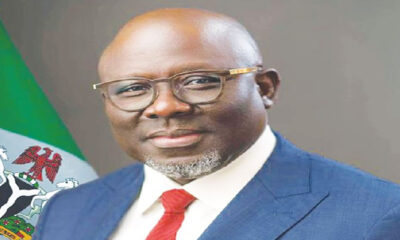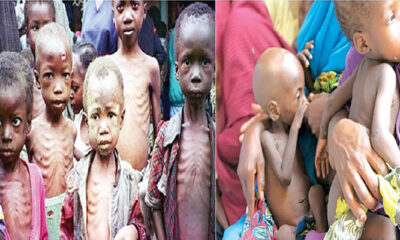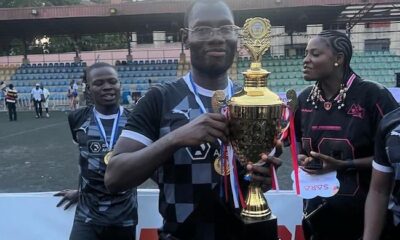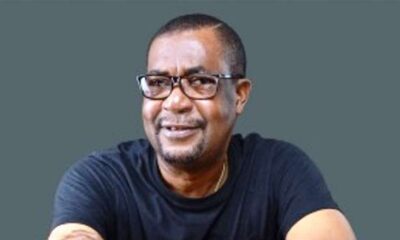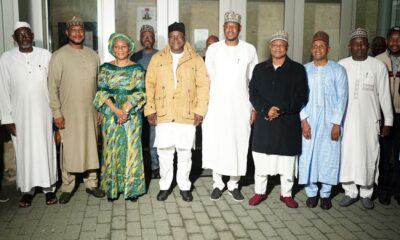News
Bangladesh’s Initiative to Provide a Mosque for the Transgender Hijra Community
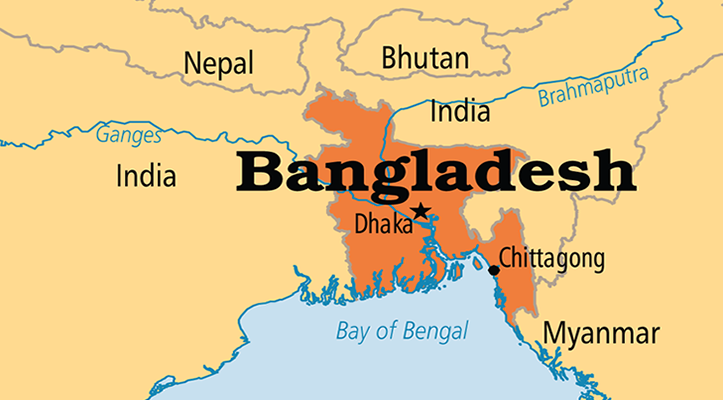
Excluded from traditional prayer services, the transgender hijra community in Bangladesh has found acceptance in a new mosque within the Muslim-majority nation. This mosque offers a space for worship without facing discrimination.
The mosque, a modest single-room structure with tin walls and roof, serves as a community center for this minority group. Despite recent legal and political advancements for the hijra community, stigma and prejudice remain significant challenges.
In a passionate address to the crowded gathering, community leader Joyita Tonu declared, “No one can prevent a hijra from praying in our mosque from now on. No one can ridicule us,” she added emotionally, her head covered with a white scarf.
Located near Mymensingh, north of Dhaka, beside the Brahmaputra river, the mosque was established on government-donated land after the city’s hijra community faced expulsion from an established congregation.
Sonia, a 42-year-old who cherished reciting the Quran and studying at an Islamic seminary as a child, expressed her disbelief at being able to pray at a mosque again after being barred due to her hijra identity.
Despite facing discrimination that discouraged them from attending mosques, Sonia emphasized the significance of this mosque as a safe space where they are accepted without prejudice.
– Embracing Equality –
While Bangladesh has made strides in legally recognizing hijra individuals as a third gender since 2013, they still face challenges in gaining societal recognition, property rights, and marriage rights.
Despite the hurdles, some hijra individuals have ventured into Bangladeshi politics, showcasing their resilience and determination in overcoming obstacles.
Mufti Abdur Rahman Azad, founder of a hijra charity, highlighted the significance of the new mosque as a symbol of inclusivity in a society grappling with discrimination against the transgender community.
According to the mosque’s imam, Abdul Motaleb, the mistreatment of the hijra community contradicts the teachings of Islam, which stress equality and acceptance of all individuals.
– Fostering Understanding –
Motaleb emphasized the importance of learning from the hijra community’s faith and resilience, underscoring that everyone, regardless of gender identity, is entitled to pray and should not be denied this right.
The mosque has already begun to challenge existing prejudices, as evidenced by local resident Tofazzal Hossain, who attested to the positive impact of praying alongside hijra individuals on dispelling misconceptions.
Tonu envisions expanding the mosque to accommodate a larger congregation, aiming to create a space where hundreds can gather for prayers together.
Through initiatives like this mosque, Bangladesh takes a step towards fostering inclusivity and understanding within its diverse society.

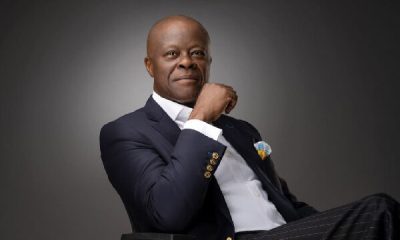
 Business8 months ago
Business8 months agoFinance minister: Tinubu’s government met a bad economy, can’t borrow to fix it

 News5 months ago
News5 months agoWorld Bank disburses $300m palliative loans
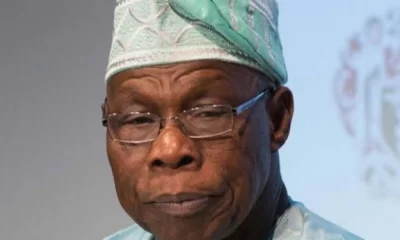
 Business8 months ago
Business8 months agoWorld Leaders, Including Obasanjo, Call for End to Dollar Dominance

 News6 months ago
News6 months agoBlogger Wins N1m Prize at WIMBIZ Conference

 Business9 months ago
Business9 months agoNigeria’s Crude Oil Production Falls to 3-Month Low Amid Persistent Oil Theft

 Business1 month ago
Business1 month agoFinance Analyst, Aja: Naira Strengthens as Forex Subsidy Boost BDC Operators

 News5 months ago
News5 months agoNigeria Achieves 78% Vaccination Coverage in 12 States, Reveals Official

 Business7 months ago
Business7 months agoIt’s false, NNPCL not involved in secret recruitment
